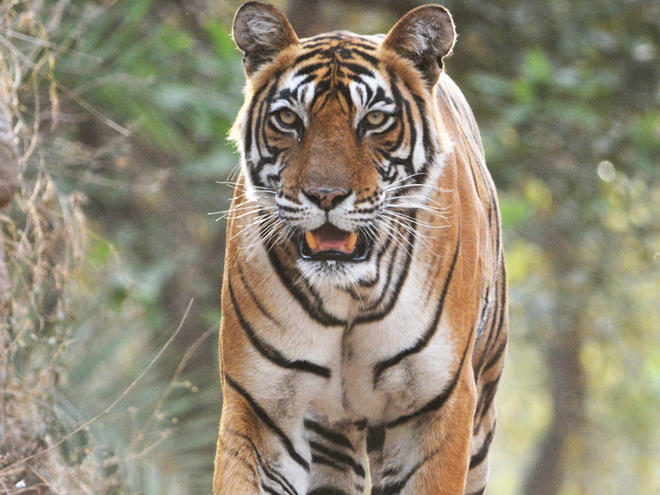
In an enormous setback for wildlife conservation, China announced it will allow hospitals to use tiger bone and rhino horn from captive-bred animals for traditional medicine. The decision reverses a decades-old ban that has been instrumental in preventing the extinction of endangered tigers and rhinos.
“China’s decision to reopen a legalized trade in farmed tiger bone and rhino horn reverses 25 years of conservation progress in reducing the demand for these products in traditional Chinese medicine and improving the effectiveness of law enforcement,” said Leigh Henry, director of wildlife policy, WWF-US. “This devastating reversal by China runs completely counter to the image of wildlife champion the world had come to expect with China’s ivory trade, which was such a positive development for world’s elephants.”
WWF urgently calls on China to not only maintain their 1993 ban on tiger bone and rhino horn trade, but to also extend it to cover trade in all tiger parts and products, regardless of whether they’re from captive-bred or wild animals.
The new regulations say hospitals can obtain parts from captive facilities within China—excluding zoos—where tigers and rhinos are bred for commercial purposes. Experts estimate that more than 6,500 tigers live in China’s tiger farms, far outnumbering the roughly 3,900 remaining in the wild.
The 1993 ban significantly curbed the demand of tiger and rhino parts from what has long been considered the worlds’ largest consumer market for such products. Over the years, China has taken significant steps to implement and enforce this ban through public education campaigns, promotion of effective substitutes for tiger and rhino medicines, and strengthening law enforcement. Allowing the legal market of such parts to resume will be detrimental conservation efforts, potentially fueling the demand for these products and increasing poaching of wild tigers and rhinos.
China has been a leader in pioneering conservation of majestic species such as elephants, and WWF is optimistic that the country will recognize its role in the illegal tiger and rhino trade and maintain the ban.
Help tigers, rhinos, and other wildlife. Sign on to stop wildlife crime.
Published October 29, 2018 at 05:00AM
No comments:
Post a Comment